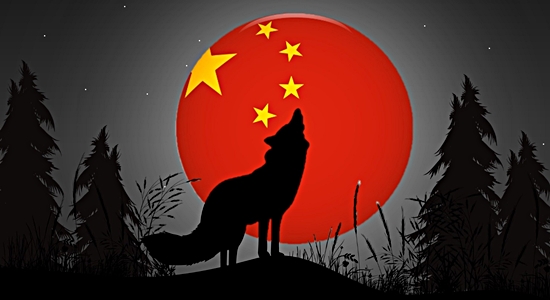
It doesn’t matters whether National Security Adviser Jake Sullivan’s recent excursion to China yielded “much in terms of actual deliverables,” for “this wasn’t the essential thing.” The essential thing was “engagement.” China has nukes, we have nukes. Ergo.
Will China use the nukes unless the United States periodically engages in diplomatic submission to a thug state that exploits such submission as a means of helping it pursue its agendas? Does moral pretense about the nature of the persons across the table incur any costs in terms of precedents established and alternatives foreclosed?
Karishma Vaswani doesn’t say. It’s not that kind of commentary. If you’re engaging in engagement, this is the important thing.
Narratives
Vaswani also says that because “this relationship” has got to “go beyond politicians and officials,” it is “imperative” that “the next generation of young Chinese and Americans view each other as partners, not enemies.” How to accomplish this unification? By deepening “people-to-people exchanges” and by “elevating voices” that offer “alternative narratives” to what the CCP is pitching (“Look Beyond Politicians to Mend US–China ties,” Bloomberg, August 29, 2024).
Whether the increase in “people-to-people exchanges” that Vaswani recommends would do more harm than good depends on the context of the “exchanges.” Is it about more students and journalists being taken on CCP-guided propaganda tours in China? Will we all “understand” better what is happening to the Uyghurs in the Xinjiang province, reeducation camps, forced organ transplants, rapes, murders, after being fed a lot of happy lies during a tour of select sites of that province?
What about “elevating voices that offer alternative narratives from the Chinese Communist Party”? Sounds good, if you don’t mind the lingo about “elevating” and “alternative narratives.”
But what does Vaswani mean by it? Is she talking about Chinese nationals who oppose and expose the Chinese party-state and all it stands for, expressing the kind of awareness of the Party’s nature that does not manifest itself any too strongly in the blurry cogitating of Vaswani? Does she mean anti-CCP Chinese who have escaped China and now want to fight its government in the West away from the Party’s continuous censorship and surveillance?
Yes, elevate such voices. Publish them. Broadcast their words. Protect them from the agents of the Chinese Communist Party who harass Chinese nationals living overseas whom the Party regards as troublemakers.
Tensions
However, this form of “broadening understanding” would tend not to “defuse future tensions” but rather to intensify them insofar as listeners who had been kidding themselves about the nature and goals of the Chinese Communist Party now better understand these. Feelings of greater tension are natural when you realize that the wolf at the door really is a wolf.
Vaswani should be more specific about what kind of understanding between which American people and which Chinese people she is seeking and why the tension she is talking about is bad. Feelings of tension in response to a threat may motivate one to focus on what must be done to effectively counter the threat.
But it’s not that kind of commentary. It’s the kind made out of fuzzy abstractions that sound good if you don’t think about them too hard. Examples—for example, of the kinds of things that the Chinese government routinely does internationally and at home to people, from gray-zoning to genocide—would pop all the vacuous abstract bubbles.
In Vaswani’s mind, what serves American interests and undercuts the interests of the Chinese government only really helps Beijing by giving it something more to talk about in its propaganda.
Narratives
Thus, unluckily, “Relations took on a more hostile tone during former President Donald Trump’s term: He imposed tariffs on billions of dollars worth of goods, and categorized Beijing as a national security risk, putting key high-tech industries off limits. China views this as the US trying to contain its rise—a narrative that’s proved useful for Xi to justify his drive for self-reliance in science and technology.”
China, a national security risk? No! Not a wolf at all. The United States fell right into the lamb’s trap by suggesting otherwise.
Luckily, though, “The US election is another chance for the two countries to reset ties. Vice President Kamala Harris’ running mate, Minnesota Governor Tim Walz knows China well, and could help bring more thoughtfulness to the fractious relationship. Trump, on the other hand, would likely inject further uncertainty.”
I know of other narratives that will “prove useful” to Xi and the CCP in their push for hegemony. Ones like that of Karishma Vaswani.
Also see:
StopTheChinazis.org: “Tim Walz, the Communist Anticommunist”
“The nominee for U.S. vice president on the Democrat ticket may be an excellent example of the saying ‘Big help with a little badmouth.’… Tim Walz has made good use of the leeway given for giving big help.”





